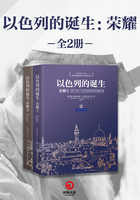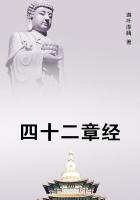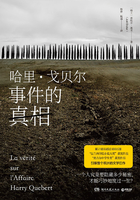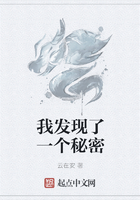Mrs Bolton also kept a cherishing eye on Connie, feeling she mustextend to her her female and professional protection. She was always urging her ladyship to walk out, to drive to Uthwaite, to be in the air.For Connie had got into the habit of sitting still by the fire, pretending to read; or to sew feebly, and hardly going out at all.
It was a blowy day soon after Hilda had gone, that Mrs Bolton said:'Now why don't you go for a walk through the wood, and look at the daffs behind the keeper's cottage?They're the prettiest sight you'd see in a day's march. And you could put some in your room; wild daffs are always so cheerful-looking, aren't they?'
Connie took it in good part, even daffs for daffodils. Wild daffodils!After all, one could not stew in one's own juice.The spring came back…'Seasons return, but not to me returns Day, or the sweet approach of Ev'n or Morn.'
And the keeper, his thin, white body, like a lonely pistil of an invisible flower!She had forgotten him in her unspeakable depression. But now something roused…'Pale beyond porch and portal'…the thing to do was to pass the porches and the portals.
She was stronger, she could walk better, and in the wood the wind would not be so tiring as it was across the bark, flatten against her. She wanted to forget, to forget the world, and all the dreadful, carrion-bodied people.'Ye must be born again!I believe in the resurrection of the body!Except a grain of wheat fall into the earth and die, it shall by no means bring forth.When the crocus cometh forth I too will emerge and see the sun!'In the wind of March endless phrases swept through her consciousness.
Little gusts of sunshine blew, strangely bright, and lit up the celandines at the wood's edge, under the hazel-rods, they spangled out bright and yellow. And the wood was still, stiller, but yet gusty with crossing sun.The first windflowers were out, and all the wood seemed pale with the pallor of endless little anemones, sprinkling the shaken floor.'The world has grown pale with thy breath.'But it was the breath of Persephone, this time; she was out of hell on a cold morning.Cold breaths of wind came, and overhead there was an anger of entangled wind caught among the twigs.It, too, was caught and trying to tear itself free, the wind, like Absalom.How cold the anemones looked, bobbing their naked white shoulders over crinoline skirts of green.But they stood it.A few first bleached little primroses too, by the path, and yellow buds unfolding themselves.
The roaring and swaying was overhead, only cold currents came down below. Connie was strangely excited in the wood, and the colour flew in her cheeks, and burned blue in her eyes.She walked ploddingly, picking a few primroses and the first violets, that smelled sweet and cold, sweet and cold.And she drifted on without knowing where she was.
Till she came to the clearing, at the end of the wood, and saw the green-stained stone cottage, looking almost rosy, like the flesh underneath amushroom, its stone warmed in a burst of sun. And there was a sparkle of yellow jasmine by the door; the closed door.But no sound; no smoke from the chimney; no dog barking.
She went quietly round to the back, where the bank rose up; she had an excuse, to see the daffodils.
And they were there, the short-stemmed flowers, rustling and fluttering and shivering, so bright and alive, but with nowhere to hide their faces, as they turned them away from the wind.
They shook their bright, sunny little rags in bouts of distress. But perhaps they liked it really; perhaps they really liked the tossing.
Constance sat down with her back to a young pine-tree, that wayed against her with curious life, elastic, and powerful, rising up. The erect, alive thing, with its top in the sun!And she watched the daffodils turn golden, in a burst of sun that was warm on her hands and lap.Even she caught the faint, tarry scent of the flowers.And then, being so still and alone, she seemed to bet into the current of her own proper destiny.She had been fastened by a rope, and jagging and snarring like a boat at its moorings; now she was loose and adrift.
The sunshine gave way to chill; the daffodils were in shadow, dipping silently. So they would dip through the day and the long cold night.So strong in their frailty!
She rose, a little stiff, took a few daffodils, and went down. She hated breaking the flowers, but she wanted just one or two to go with her.She would have to go back to Wragby and its walls, and now she hated it, especially its thick walls.Walls!Always walls!Yet one needed them in this wind.
When she got home Clifford asked her:
'Where did you go?'
'Right across the wood!Look, aren't the little daffodils adorable?To think they should come out of the earth!'
'Just as much out of air and sunshine, 'he said.
'But modelled in the earth, 'she retorted, with a prompt contradiction, that surprised her a little.
The next afternoon she went to the wood again. She followed the broad riding that swerved round and up through the larches to a spring called John'sWell.It was cold on this hillside, and not a flower in the darkness of larches.But the icy little spring softly pressed upwards from its tiny well-bed of pure, reddish-white pebbles.How icy and clear it was!Brilliant!The new keeper had no doubt put in fresh pebbles.She heard the faint tinkle of water, as the tiny overflow trickled over and downhill.Even above the hissing boom of the larchwood, that spread its bristling, leafless, wolfish darkness on the down-slope, she heard the tinkle as of tiny water-bells.
This place was a little sinister, cold, damp. Yet the well must have been a drinking-place for hundreds of years.Now no more.Its tiny cleared space was lush and cold and dismal.
She rose and went slowly towards home. As she went she heard a faint tapping away on the right, and stood still to listen.Was it hammering, or a woodpecker?It was surely hammering.
She walked on, listening. And then she noticed a narrow track between young fir-trees, a track that seemed to lead nowhere.But she felt it had been used.She turned down it adventurously, between the thick young firs, which gave way soon to the old oak wood.She followed the track, and the hammering grew nearer, in the silence of the windy wood, for trees make a silence even in their noise of wind.
She saw a secret little clearing, and a secret little hot made of rustic poles. And she had never been here before!She realized it was the quiet place where the growing pheasants were reared; the keeper in his shirt-sleeves was kneeling, hammering.The dog trotted forward with a short, sharp bark, and the keeper lifted his face suddenly and saw her.He had a startled look in his eyes.
He straightened himself and saluted, watching her in silence, as she came forward with weakening limbs. He resented the intrusion; he cherished his solitude as his only and last freedom in life.
'I wondered what the hammering was, 'she said, feeling weak and breathless, and a little afraid of him, as he looked so straight at her.
'Ah'm gettin'th'coops ready for th'young bods, 'he said, in broad vernacular.
She did not know what to say, and she felt weak.'I should like to sit down a bit, 'she said.
'Come and sit'ere i'th''ut, 'he said, going in front of her to the hut, pushing aside some timber and stuff, and drawing out a rustic chair, made of hazel sticks.
'Am Ah t'light yer a little fire?'he asked, with the curious naivetéof the dialect.
'Oh, don't bother, 'she replied.
But he looked at her hands; they were rather blue. So he quickly took some larch twigs to the little brick fire-place in the corner, and in a moment the yellow flame was running up the chimney.He made a place by the brick hearth.
'Sit'ere then a bit, and warm yer, 'he said.
She obeyed him. He had that curious kind of protective authority she obeyed at once.So she sat and warmed her hands at the blaze, and dropped logs on the fire, whilst outside he was hammering again.She did not really want to sit, poked in a corner by the fire; she would rather have watched from the door, but she was being looked after, so she had to submit.
The hut was quite cosy, panelled with unvarnished deal, having a little rustic table and stool beside her chair, and a carpenter's bench, then a big box, tools, new boards, nails; and many things hung from pegs:axe, hatchet, traps, things in sacks, his coat. It had no window, the light came in through the open door.It was a jumble, but also it was a sort of little sanctuary.
She listened to the tapping of the man's hammer; it was not so happy. He was oppressed.Here was a trespass on his privacy, and a dangerous one!A woman!He had reached the point where all he wanted on earth was to be alone.And yet he was powerless to preserve his privacy; he was a hired man, and these people were his masters.
Especially he did not want to come into contact with a woman again. He feared it; for he had a big wound from old contacts.He felt if he could not be alone, and if he could not be left alone, he would die.His recoil away from the outer world was complete; his last refuge was this wood; to hide himself there!
Connie grew warm by the fire, which she had made too big:then she grew hot. She went and sat on the stool in the doorway, watching the man at work.He seemed not to notice her, but he knew.Yet he worked on, as if absorbedly, and his brown dog sat on her tail near him, and surveyed the untrustworthy world.
Slender, quiet and quick, the man finished the coop he was making, turned it over, tried the sliding door, then set it aside. Then he rose, went for an old coop, and took it to the chopping log where he was working.Crouching, he tried the bars; some broke in his hands; he began to draw the nails.Then he turned the coop over and deliberated, and he gave absolutely no sign of awareness of the woman's presence.
So Connie watched him fixedly. And the same solitary aloneness she had seen in him naked, she now saw in him clothed:solitary, and intent, like an animal that works alone, but also brooding, like a soul that recoils away, away from all human contact.Silently, patiently, he was recoiling away from her even now.It was the stillness, and the timeless sort of patience, in a man impatient and passionate, that touched Connie's womb.She saw it in his bent head, the quick quiet hands, the crouching of his slender, sensitive loins; something patient and withdrawn.She felt his experience had been deeper and wider than her own; much deeper and wider, and perhaps more deadly.And this relieved her of herself; she felt almost irresponsible.
So she sat in the doorway of the hut in a dream, utterly unaware of time and of particular circumstances. She was so drifted away that he glanced up at her quickly, and saw the utterly still, waiting look on her face.To him it was a look of waiting.And a little thin tongue of fire suddenly flickered in his loins, at the root of his back, and he groaned in spirit.He dreaded with a repulsion almost of death, any further close human contact.He wished above all things she would go away, and leave him to his own privacy.He dreaded her will, her female will, and her modern female insistency.And above all he dreaded her cool, upper-class impudence of having her own way.For after all he was only a hired man.He hated her presence there.
Connie came to herself with sudden uneasiness. She rose.The afternoon was turning to evening, yet she could not go away.She went over to the man, who stood up at attention, his worn face stiff and blank, his eyes watching her.
'It is so nice here, so restful, 'she said.'I have never been here before.'
'No?'
'I think I shall come and sit here sometimes.
'Yes?'
'Do you lock the hut when you're not here?'
'Yes, your Ladyship.'
'Do you think I could have a key too, so that I could sit here sometimes?Are there two keys?'
'Not as Ah know on, ther'isna.'
He had lapsed into the vernacular. Connie hesitated; he was putting up an opposition.Was it his hut, after all?
'Couldn't we get another key?'she asked in her soft voice, that underneath had the ring of a woman determined to get her way.
'Another!'he said, glancing at her with a flash of anger, touched with derision.
'Yes, a duplicate, 'she said, flushing.
''Appen Sir Clifford'ud know, 'he said, putting her off.
'Yes!'she said, 'he might have another. Otherwise we could have one made from the one you have.It would only take a day or so, I suppose.You could spare your key for so long.'
'Ah canna tell yer, m'Lady!Ah know nob'dy as ma'es keys round'ere.'
Connie suddenly flushed with anger.
'Very well!'she said.'I'll see to it.'
'All right, your Ladyship.'
Their eyes met. His had a cold, ugly look of dislike and contempt, and indifference to what would happen.Hers were hot with rebuff.
But her heart sank, she saw how utterly he disliked her, when she went against him. And she saw him in a sort of desperation.
'Good afternoon!'
'Afternoon, my Lady!'He saluted and turned abruptly away. She had wakened the sleeping dogs of old voracious anger in him, anger against the self-willed female.And he was powerless, powerless.He knew it!
And she was angry against the self-willed male. A servant too!She walked sullenly home.
She found Mrs Bolton under the great beech-tree on the knoll, looking for her.
'I just wondered if you'd be coming, my Lady, 'the woman said brightly.
'Am I late?'asked Connie.
'Oh only Sir Clifford was waiting for his tea.'
'Why didn't you make it then?'
'Oh, I don't think it's hardly my place. I don't think Sir Clifford would like it at all, my Lady.'
'I don't see why not, 'said Connie.
She went indoors to Clifford's study, where the old brass kettle was simmering on the tray.
'Am I late, Clifford?'she said, putting down the few flowers and taking up the tea-caddy, as she stood before the tray in her hat and scarf.'I'm sorry!Why didn't you let Mrs Bolton make the tea?'
'I didn't think of it, 'he said ironically.'I don't quite see her presiding at the tea-table.'
'Oh, there's nothing sacrosanct about a silver tea-pot, 'said Connie.
He glanced up at her curiously.
'What did you do all afternoon?'he said.
'Walked and sat in a sheltered place. Do you know there are still berries on the big holly-tree?'
She took off her scarf, but not her hat, and sat down to make tea. The toast would certainly be leathery.She put the tea-cosy over the tea-pot, and rose to get a little glass for her violets.The poor flowers hung over, limp on their stalks.
'They'll revive again!'she said, putting them before him in their glass for him to smell.
'Sweeter than the lids of Juno's eyes, 'he quoted.
'I don't see a bit of connexion with the actual violets, 'she said.'The Elizabethans are rather upholstered.'
She poured him his tea.
'Do you think there is a second key to that little hut not far from John's Well, where the pheasants are reared?'she said.
'There may be. Why?'
'I happened to find it today—and I'd never seen it before. I think it's a darling place.I could sit there sometimes, couldn't I?'
'Was Mellors there?'
'Yes!That's how I found it:his hammering. He didn't seem to like my intruding at all.In fact he was almost rude when I asked about a second key.'
'What did he say?'
'Oh, nothing:just his manner; and he said he knew nothing about keys.'
'There may be one in Father's study. Betts knows them all, they're all there.I'll get him to look.'
'Oh do!'she said.
'So Mellors was almost rude?'
'Oh, nothing, really!But I don't think he wanted me to have the freedom of the castle, quite.'
'I don't suppose he did.'
'Still, I don't see why he should mind. It's not his home, after all!It's not his private abode.I don't see why I shouldn't sit there if I want to.'
'Quite!'said Clifford.'He thinks too much of himself, that man.'
'Do you think he does?'
'Oh, decidedly!He thinks he's something exceptional. You know he had a wife he didn't get on with, so he joined up in 1915 and was sent to India, I believe.Anyhow he was blacksmith to the cavalry in Egypt for a time; always was connected with horses, a clever fellow that way.Then some Indian colonel took a fancy to him, and he was made a lieutenant.Yes, they gave him a commission.I believe he went back to India with his colonel, and up to the north-west frontier.He was ill; he was a pension.He didn't come out of the army till last year, I believe, and then, naturally, it isn't easy for a man like that to get back to his own level.He's bound to flounder.But he does his duty all right, as far as I'm concerned.Only I'm not having any of the Lieutenant Mellors touch.'
'How could they make him an officer when he speaks broad Derbyshire?'
'He doesn't…except by fits and starts. He can speak perfectly well, for him.I suppose he has an idea if he's come down to the ranks again, he'd better speak as the ranks speak.'
'Why didn't you tell me about him before?'
'Oh, I've no patience with these romances. They're the ruin of all order.It's a thousand pities they ever happened.'
Connie was inclined to agree. What was the good of discontented people who fitted in nowhere?
In the spell of fine weather Clifford, too, decided to go to the wood. The wind was cold, but not so tiresome, and the sunshine was like life itself, warm and full.
'It's amazing, 'said Connie, 'how different one feels when there's a really fresh fine day. Usually one feels the very air is half dead.People are killing the very air.'
'Do you think people are doing it?'he asked.
'I do. The steam of so much boredom, and discontent and anger out of all the people, just kills the vitality in the air.I'm sure of it.'
'Perhaps some condition of the atmosphere lowers the vitality of the people?'he said.
'No, it's man that poisons the universe, 'she asserted.
'Fouls his own nest, 'remarked Clifford.
The chair puffed on. In the hazel copse catkins were hanging pale gold, and in sunny places the wood-anemones were wide open, as if exclaiming with the joy of life, just as good as in past days, when people could exclaim along with them.They had a faint scent of apple-blossom.Connie gathered a few for Clifford.
He took them and looked at them curiously.
'Thou still unravished bride of quietness, 'he quoted.'It seems to fit flowers so much better than Greek vases.'
'Ravished is such a horrid word!'she said.'It's only people who ravish things.'
'Oh, I don't know…snails and things, 'he said.
'Even snails only eat them, and bees don't ravish.'
She was angry with him, turning everything into words. Violets were Juno's eyelids, and windflowers were on ravished brides.How she hated words, always coming between her and life:they did the ravishing, if anything did:ready-made words and phrases, sucking all the life-sap out of living things.
The walk with Clifford was not quite a success. Between him and Connie there was a tension that each pretended not to notice, but there it was.Suddenly, with all the force of her female instinct, she was shoving him off.She wanted to be clear of him, and especially of his consciousness, his words, his obsession with himself, his endless treadmill obsession with himself, and his own words.
The weather came rainy again. But after a day or two she went out in the rain, and she went to the wood.And once there, she went towards the hut.It was raining, but not so cold, and the wood felt so silent and remote, inaccessible in the dusk of rain.
She came to the clearing. No one there!The hut was locked.But she sat on the log doorstep, under the rustic porch, and snuggled into her own warmth.So she sat, looking at the rain, listening to the many noiseless noises of it, and to the strange soughings of wind in upper branches, when there seemed to be no wind.Old oak-trees stood around, grey, powerful trunks, rain-blackened, round and vital, throwing off reckless limbs.The ground was fairly free of undergrowth, the anemones sprinkled, there was a bush or two, elder, or guelder-rose, and a purplish tangle of bramble:the old russet of bracken almost vanished under green anemone ruffs.Perhaps this was one of the unravished places.Unravished!The whole world was ravished.
Some things can't be ravished. You can't ravish a tin of sardines.And so many women are like that; and men.But the earth…!
The rain was abating. It was hardly making darkness among the oaks any more.Connie wanted to go; yet she sat on.But she was getting cold; yet the overwhelming inertia of her inner resentment kept her there as if paralysed.
Ravished!How ravished one could be without ever being touched. Ravished by dead words become obscene, and dead ideas become obsessions.
A wet brown dog came running and did not bark, lifting a wet feather of a tail. The man followed in a wet black oilskin jacket, like a chauffeur, and face flushed a little.She felt him recoil in his quick walk, when he saw her.Shestood up in the handbreadth of dryness under the rustic porch.He saluted without speaking, coming slowly near.She began to withdraw.
'I'm just going, 'she said.
'Was yer waitin'to get in?'he asked, looking at the hut, not at her.
'No, I only sat a few minutes in the shelter, 'she said, with quiet dignity.
He looked at her. She looked cold.
'Sir Clifford'adn't got no other key then?'he asked.
'No, but it doesn't matter. I can sit perfectly dry under this porch.Good afternoon!'She hated the excess of vernacular in his speech.
He watched her closely, as she was moving away. Then he hitched up his jacket, and put his hand in his breeches pocket, taking out the key of the hut.
''Appen yer'd better'ave this key, an'Ah min fend for t'bods some other road.'
She looked at him.
'What do you mean?'she asked.
'I mean as'appen Ah can find anuther pleece as'll du for rearin'th'pheasants. If yer want ter be'ere, yo'll non want me messin'abaht a'th'time.'
She looked at him, getting his meaning through the fog of the dialect.
'Why don't you speak ordinary English?'she said coldly.
'Me!ah thowt it wor ordinary.'
She was silent for a few moments in anger.
'So if yer want t'key, yer'd better tacit. Or'appen Ah'd better gi'e't yer termorrer, an'clear all t'stuff aht fust.Would that du for yer?'
She became more angry.
'I didn't want your key, 'she said.'I don't want you to clear anything out at all. I don't in the least want to turn you out of your hut, thank you!I only wanted to be able to sit here sometimes, like today.But I can sit perfectly well under the porch, so please say no more about it.'
He looked at her again, with his wicked blue eyes.
'Why, 'he began, in the broad slow dialect.'Your Ladyship's as welcome as Christmas ter th'hut an'th'key an'iverythink as is. On'y this time O'th'year ther's bods ter set, an'Ah've got ter be potterin'abaht a good bit, seein'after'em, an'a'.Winter time Ah ned'ardly come nigh th'pleece.But what wi'spring, an'Sir Clifford wantin'ter start th'pheasants…An'your Ladyship'd non want me tinkerin'around an'about when she was'ere, all the time.'
She listened with a dim kind of amazement.
'Why should I mind your being here?'she asked.
He looked at her curiously.
'T'nuisance on me!'he said briefly, but significantly. She flushed.'Very well!'she said finally.'I won't trouble you.But I don't think I should have minded at all sitting and seeing you look after the birds.I should have liked it.But since you think it interferes with you, I won't disturb you, don't be afraid.You are Sir Clifford's keeper, not mine.'
The phrase sounded queer, she didn't know why. But she let it pass.
'Nay, your Ladyship. It's your Ladyship's own'ut.It's as your Ladyship likes an'pleases, every time.Yer can turn me off at a wik's notice.It wor only…'
'Only what?'she asked, baffled.
He pushed back his hat in an odd comic way.
'On'y as'appen yo'd like the place ter yersen, when yer did come, an'not me messin'abaht.'
'But why?'she said, angry.'Aren't you a civilized human being?Do you think I ought to be afraid of you?Why should I take any notice of you and your being here or not?Why is it important?'
He looked at her, all his face glimmering with wicked laughter.
'It's not, your Ladyship. Not in the very least, 'he said.
'Well, why then?'she asked.
'Shall I get your Ladyship another key then?'
'No thank you!I don't want it.'
'Ah'll get it anyhow. We'd best'ave two keys ter th'place.'
'And I consider you are insolent, 'said Connie, with her colour up, panting a little.
'Nay, nay!'he said quickly.'Dunna yer say that!Nay, nay!I niver meant nuthink. Ah on'y thought as if yo'come'ere, Ah s'd ave ter clear out, an'it'd mean a lot of work, settin'up somewheres else.But if your Ladyship isn't going ter take no notice O'me, then…it's Sir Clifford's'ut, an'everythink isas your Ladyship likes, everythink is as your Ladyship likes an'pleases, barrin'yer take no notice O'me, doin'th'bits of jobs as Ah've got ter do.'
Connie went away completely bewildered. She was not sure whether she had been insulted and mortally of fended, or not.Perhaps the man really only meant what he said; that he thought she would expect him to keep away.As if she would dream of it!And as if he could possibly be so important, he and his stupid presence.
She went home in confusion, not knowing what she thought or felt.















